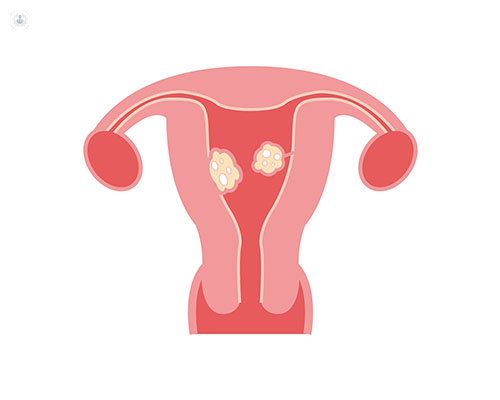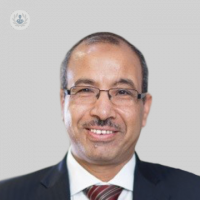Uterine fibroids: an expert's guide
Written by:Uterine fibroids are noncancerous growths that can appear in the uterus, growing from the muscular wall of the uterus. In our latest article, renowned obstetrician and gynaecologist Professor Yacoub Khalaf offers his expert insight into the condition.
What are uterine fibroids?
Fibroids are benign fibrous lumps that grow from the muscular wall of the uterus. They are very small when they first appear but can slowly grow to attain a large size, and in doing so may give rise to symptoms such as heavy periods, bloating, and pressure symptoms that could cause a frequent need to pass urine and back pain.

Can fertility medicine cause uterine fibroids?
No. It is thought that prolonged exposure to oestrogen may contribute to the appearance of fibroids, but fertility treatment courses are usually short and interrupted.
Can uterine fibroids affect fertility?
Yes, fibroids can affect fertility, although it is rare. They may affect the cavity of the uterus or the fallopian tubes leading to difficulties in getting pregnant. This usually only happens if the fibroids are very large.
How are uterine fibroids diagnosed?
Usually, they are diagnosed when they cause symptoms such as heavy periods, fertility issues or pressure symptoms due to their size. They can also be discovered incidentally when a patient has an ultrasound scan or other imaging test on her abdomen or pelvis
How are uterine fibroids managed?
Management usually depends on the problem that the fibroids are causing. If the main presentation is a delay in getting pregnant and imaging tests have indicated that fibroids may be a cause, then surgical removal is the preferred option. If they are discovered incidentally and they are not causing symptoms they may not need any treatment. If they are compressing the urinary bladder, causing back pain or undue abdominal enlargement, a treatment that can help them shrink is available.

How do endoscopic and open surgery treatments differ?
Endoscopic treatment involves the removal of certain fibroids through what is known as minimally invasive surgery (day surgery). This is suitable for certain fibroids depending on their size, number and location. The main advantage is a short hospital stay and a quicker recovery.
Conventional open surgery is much more appropriate for large and multiple fibroids, when it would be hazardous to attempt removal through keyhole surgery. The hospital stay can be 1-2 nights long and usually involves a cut through the bikini line in the majority of cases, and ensuring all fibroids (including smaller ones) are removed to reduce the risk of leaving any fibroids behind. These could grow with time, and would need another surgery.
If you are concerned about fibroids, or any other gynaecological issue, please don’t hesitate to book a consultation with Professor Yacoub Khalaf today via his Top Doctors profile.


